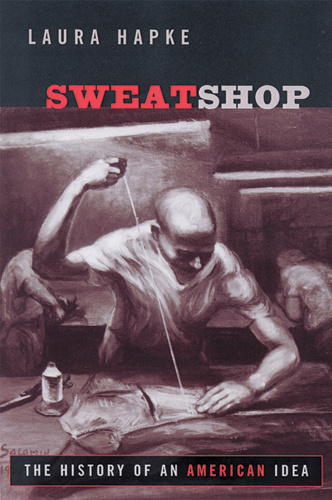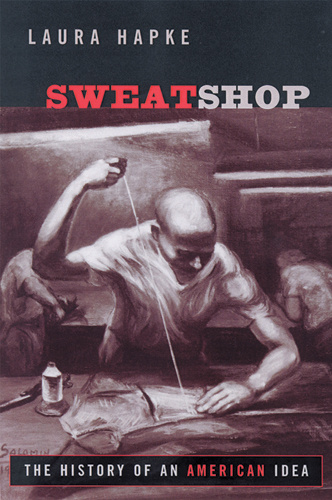Arguing that the sweatshop is as American as apple pie, Laura Hapke surveys over a century and a half of the language, verbal and pictorial, in which the sweatshop has been imagined and its stories told. Not seeking a formal definition of the sort that policymakers are concerned with, nor intending to provide a strict historical chronology, this unique book shows, rather, how the “real” sweatshop has become intertwined with the “invented” sweatshop of our national imagination, and how this mixture of rhetoric and myth has endowed American sweatshops with rich and complex cultural meaning.
Hapke uncovers a wide variety of tales and images that writers, artists, social scientists, reformers, and workers themselves have told about “the shop.” Adding an important perspective to historical and economic approaches, Sweatshop draws on sources from antebellum journalism, Progressive era surveys, modern movies, and anti-sweatshop websites. Illustrated chapters detail how the shop has been a facilitator of assimilation, a promoter of upward mobility, the epitome of exploitation, a site of ethnic memory, a venue for political protest, and an expression of twentieth-century managerial narratives.
An important contribution to the real and imagined history of garment industry exploitation, this book provides a valuable new context for understanding contemporary sweatshops that now represent the worst expression of an unregulated global economy.
Adding a critical new perspective to existing political, social, and economic histories, Laura Hapke has crafted a book on the sweatshops of our imagination. Hers is an important project precisely because this particular space for the production of goods carries extensive symbolic and political weight.
Sweatshop is a wholly unique, compelling, and marvelous survey of one hundred and fifty years in the narration of sweatshop experiences in prose and graphic art. Laura Hapke once again astonishes the reader with her salutary blend of historically-based interdisciplinary scholarship and wide-ranging references that treat ideology, gender, and ethnicity with appropriate clarity and sophistication.
A scholar of the sweatshop, Laura Hapke expands the boundaries of cultural studies while never losing sight of the worker behind the machine.







